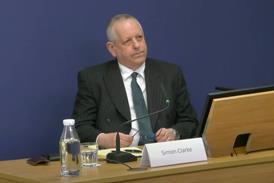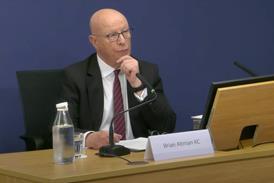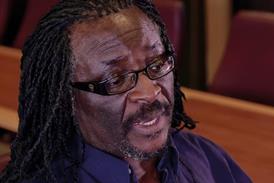A police officer is replacing a lawyer as the director of the Serious Fraud Office. Nick Ephgrave QPM will take up the role at the end of September, the attorney general announced today.
He will replace Lisa Osofsky, who took the reins of the SFO at the end of August 2018.
Ephgrave, who will be in the role for an initial term of five years, has chaired the National Police Chiefs’ Council Criminal Justice Co-ordination Committee and held roles on the Criminal Procedure Rules Committee and the Sentencing Council.
He said: ‘I am honoured to be the next director of the SFO. The SFO plays a unique and pivotal role in the UK’s response to economic crime. I look forward to building on its recent successes and driving forward work to deliver long-lasting improvements to its operations.’
Attorney general Victoria Prentis KC MP thanked Osofsky for her service. Announcing the appointment, she said 'Nick’s years of experience as a leader in law enforcement and across the wider criminal justice system make him the ideal candidate to drive the SFO forward in it continuing its fight against economic crime.'
In April this year, the committee of the City of London Law Society (CLLS) urged for ‘urgent focused reform’ at the SFO and proposed a number of changes including a budget increase. The following month, HM Crown Prosecution Service Inspectorate found the organisation on the ‘right track’ to tackle some of its problems and has made improvements in handling and progressing cases.

Specialist lawyers reacted warmly to the news. Lloyd Firth, counsel in WilmerHale’s UK white collar defence and investigations practice, said Ephgrave was ‘unlikely to be daunted by the prospect of overhauling the SFO’s culture and performance’.
He added: ‘As a former senior police officer, his experience will necessarily be focused more on the prevention, detection and investigation of crime, rather than the intricacies of prosecuting it, but his appointment appears to acknowledge the key role of the director in framing the direction, strategy and public perception of the SFO.’
Neil Swift, partner at Peters & Peters, said: ‘The main challenge for this new director will be to choose the direction of travel. Will he continue to prioritise the pursuit of corporate scalps, whether through guilty pleas or DPAs, or will he shift focus back to executives? The SFO’s track record suggests that it cannot do both.
‘There are clear benefits to be had from at least a temporary refocus. One of the most effective ways of changing boardroom and corporate behaviour is to prosecute and convict executives. This would give rise to a fear factor that is currently lacking, and show that the SFO can take on big cases and win.
‘However the likely enactment of a statute that makes it easier to prosecute companies suggests otherwise. This signals an expectation that the SFO will look to extract more penalties from more companies. The immediate challenge for the new director will be to ensure that disclosure ceases being an albatross around the SFO’s neck.’
This article is now closed for comment.

























2 Readers' comments